State Of The Art Training
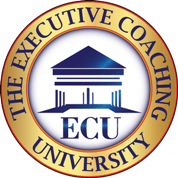
All of our training is delivered via webinars and The Executive Coaching University Online Training Center.
In the training center you find discussion groups, class materials, webinars, assignments, and more!
Fully Accredited Programs

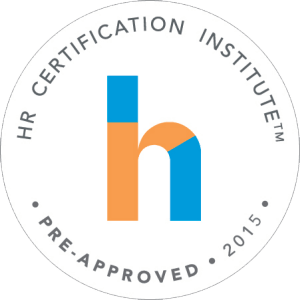
ICF Accredited for CCE Hours! We are proud to have earned the CCE (Continuing Coaching Education Provider) designation from ICF.
We are honored to have been Certified by SHRM’s HR Certification Institute.
The Coaching Crucible- Taylor's Task and Business Fundamentals
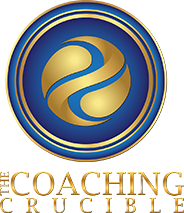
In the Coaching Crucible yesterday, we taught people how to use "Taylor's Task" to think bigger. Gary also mentored everyone on how to build a successful business by focusing on a few powerful areas. Enjoy!
Warmly,
Drayton
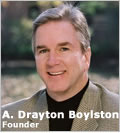
You can find out more about me here.
Here's the link to the complimentary video training on our special YouTube Channel:

*Due to the amazing demand for the complimentary public service training we do each month, we have created a YouTube Channel where you can access all of the previous training webinars dating back to 2012. These are all complimentary. Please subscribe to our channel so that you will be notified automatically when we post new videos. Enjoy!
You can register for future Coaching Crucible webinars here.
*************************************************************************
Please join Gary Henson and me as we take on the biggest issues in the coaching industry. This is a free public service program we offer each month. It is lively, provocative, and packed with helpful information!

The Coaching Crucible - How to Build Your Product Pyramid
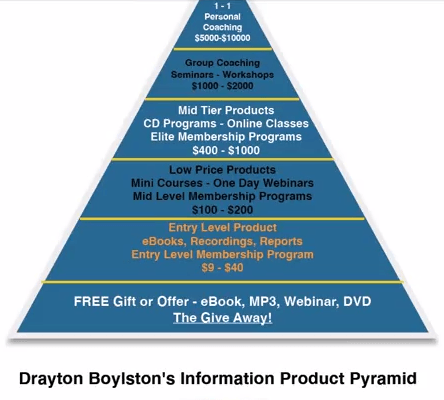
This episode of the Coaching Crucible training is about employing a powerful "Product Pyramid" to help you grow your business. This information is critical, no matter what market you might be in. This hour long training is bursting with helpful information which can help you build a solid foundation for your business. I hope it serves you well!
Warmly,
Drayton
You can find out more about me here.
Here's the link to the complimentary video training on our special YouTube Channel: 
*Due to the amazing demand for the complimentary public service training we do each month, we have created a YouTube Channel where you can access all of the previous training webinars dating back to 2012. These are all complimentary. Please subscribe to our channel so that you will be notified automatically when we post new videos. Enjoy!
You can register for future Coaching Crucible webinars here.
*************************************************************************
Please join Gary Henson and me as we take on the biggest issues in the coaching industry. This is a free public service program we offer each month. It is lively, provocative, and packed with helpful information!
The Art and Beauty of Perseverance
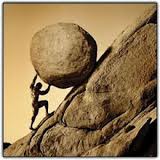
per·se·ver·ance - noun
Steadfastness in doing something despite difficulty or delay in achieving success.
You must persevere! This is what I and many others are told when we hit rough times in life and in business. This is easily said by many, well executed by few.
Perseverance means different things to different people depending on upbringing, generational differences, overall outlook on life, etc., etc. While I believe it to be true that we should stand tall in the face of obstacles in our path to freedom, success and happiness, I also believe we must utilize a higher-level perspective of these issues. We need to employ own inner wisdom (which we frequently ignore), along with a trusted outside source, and attempt to get some distance from the issue or problem so as to decide if it is worth persevering for. As my friend Robin Rose often asks her audiences “What do you really want?”
I got the opportunity to learn this lesson in my own life and business. I will be eternally grateful that I did not get the very thing I was spending the energy to persevere through a few years ago, when I was in a different industry in a horrible economy. At some point I knew it was time to end the pointless perseverance and focus on getting through the upcoming changes that needed to happen so I could focus on building the life and business of my dreams. It was not easy. I was warned by some that I should stick in out. Listening to my inner voice (and some excellent coaching around what I really wanted out of this short life)made the decision easy.
Then came the hard part. The fear. The concerns about stopping what I was doing. Taking the risk to do what I wanted to do. All the emotional, mental, and physically draining things I had to do to prepare and move ahead, were beyond overwhelming. There were many things to test my perseverance - family issues, partnership issues, and money issues, to name a few. Then there was the unexpected loss of support from some friends, whom I thought were true friends. In reality, they were only my friends when it benefitted them. Once that benefit went away with the changes I was making they no longer needed me. I am not going to lie, that one hurt.
If you are not happy. If you are searching for something. If you need to change your life and/or business. If you desire to reinvent yourself, I say DO IT!
Below are a few tips to get you started.
- Be thoughtful about your process. It does no good to constantly make changes for the sake of change.
- Create a plan. Make sure it is what you want and then begin executing that plan. This step alone may take months or even years. Don’t be intimidated, just begin and commit.
- Hire a gifted coach as your trusted advisor. It is important to have someone who hears you, challenges you, and holds you accountable to your plans. (Make sure your coach has a coach!)
- Spend time alone each day in quietude. Envision what your life will look like when you fully implement the changes for which you have persevered. Statistics have shown the most successful executives spend 20% of their week envisioning the next level for their organizations.
This is a subject that needs much more discussion based on where you are and what you want from your life. It is meant as a discussion starter so please share your thoughts, and stories about your own times of perseverance. It could be invaluable to someone who is unsure of what to do next.
If you are persevering just for the sake of it, the time is at hand to decide on the changes that will bring the outcomes for you to live the happiest, most productive life you can. You will still have ample opportunities to use your perseverance skills. Only this time, those hard-earned skills can be in alignment with what you truly want. To quote Stephen Covey: “Management is efficiency in climbing the ladder of success; leadership determines whether the ladder is leaning against the right wall.”
Find out more about Scott here.

This program will help you become an even more valuable performer!
Coaching In The Workplace
© 2014 and beyond Executive Coaching University. All rights reserved.
ICF Certification!
We just received word that our flagship Executive Coaching Training Program (CMEC) was approved by the International Coach Federation! We can now award 15 CCEUs (credit hours) toward coaching certifications with the ICF. This is a wonderful compliment to our SHRM certifications.
This is such a beautiful reflection on our entire team. Congratulations to all of you!
Many thanks to all of you for your support over the years. We are so blessed…
You can find details here:
http://www.executivecoachinguniversity.com/
Warmly,
Drayton
Founder and CEO
Coaching in the Workplace
According to Gallop (and other leading survey firms) here is the reality:
- 75% of people wished they had a different job.
- 51% of “A” workers are actively looking for a different job.
- Worker productivity is only at 33%.
- Lack of engagement costs U.S. businesses over $385 BILLION a year!
- 80% of people NEVER use their greatest gifts at work.
What do you think of these smelling salts?!
Coaching can address all of these issues…in fact; it may well be the ONLY thing that can cure these workplace “ills.”
If you don’t have a coaching strategy in your organization, I can guarantee you one thing—these statistics will not go down…
Coaching is the “cure.” Isn’t it time you used coaching to focus on your most important asset…your people?
A. Drayton Boylston
Founder and CEO
Executive Coaching University
© 2013 and beyond Executive Coaching University. All rights reserved.
Do You Lead or Manage?
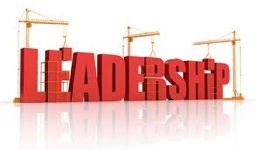
Are Leading or just Managing?
- More than two million workers say their bosses are so overworked they don’t really have time to manage their staff properly.
- 75% of people wished they had another job.
- 80% of people never use their greatest gifts at work.
Pretty sad facts.
Guess what? They more than likely apply to your organization too.
And...
If you manage people, you own this!
What’s happening within our workforce to make these statistics a reality?
In the United States employee engagement only averages 30%. That's it.
Why?
It comes down to poor leadership.
We have spent so much energy creating “good managers” that we have become disengaged with what it means to be a good leader.
Managing comes from a need to produce an outcome, which of course, is important. However, when we can move to a place of leading those around us the organizational momentum transforms. More than anything employees want to make a contribution. Once they feel that they are, they stay...and they stay engaged. Which boosts your bottom line.
- Leading is about developing the soft skills that are required to inspire and motivate people.
- Managing is about possessing the technical skills required in order to get a job done.
If you have the management skills without the leadership skills your career will plateau at some point. That is a fact.
The soft skills that good leaders possess are going to be in high demand as the battle for top talent continues to increase. Are you ready?
Click here to find out more about Jenna.

Want to learn how to become a better leader? Click here for details.
Coaching In The Workplace - Training for Executives, Managers, and HR Professionals
© 2014 and beyond Executive Coaching University. All rights reserved.
Multitasking to Success? Not Likely!
While our time together progressed, my client must have glanced towards, or checked in some way, her “smart phone” three or four times over the course of our first fifteen minutes.
I commented on her split attention and asked her to turn off the phone and just be focused on our time together for the next forty five minutes – fully focused upon our work. The look on her face would have lead someone not knowing my request, to think I had asked her to do something exceptionally distasteful…maybe even illegal!
Through our discussion around my request it became quite clear that she had NEVER turned off her phone – it was always on. This meant she was always connected, always available, always “on.”
She explained that this level of being available and connected was the status quo at her corporation and essentially had been the status quo since she was at University. “What if I miss something really important?” she asked. “I’m not productive if I’m not juggling a number of issues, projects, or conversations at once!” she stated.
This multitasking misconception arises quite often, especially with high performers who see their success as driven by the ability to do many tasks at the same time.
Yet, there is a downside to always being “on.” Consider:
- “Attention Deficit Trait,” a new condition rampant in the business world, which mimics Attention Deficit Disorder and results from extreme multitasking behavior.
- Researchers at the University of California found it took workers on average, 25 minutes to recover focus and attention after interruptions such as phone calls or answering email.
- Dr. Rene Marois of Vanderbilt University found evidence of a “response selection bottleneck” that occurs in the brain when it is forced to respond to multiple tasks. This results in diminished productivity.
- In a 2008, a piece within the New York Times by Jonathan B. Spira, an analyst with the business research firm Basex, “estimated that extreme multitasking – information overload – costs the U.S. economy $ 650 billion a year in lost productivity.” And that was in 2008!
Is it possible that any of the above might contribute to the 33% worker productivity rate in the U.S? 33%!!!
There are also other, more personal costs. This particular client was referred to me due to increasing conflicts between her staff and those in her chain of command – she had become “hard to work with” and was close to losing the job she so valued.
Additionally, her marriage was on the verge of divorce and she had been diagnosed with digestive/intestinal issues primarily caused by stress.
Coincidence? Not likely!
Sound familiar? Chances are if you are reading this then you have experienced, or know someone close to you who has experienced, a very similar chain of events.
Take time to focus within the moment, express gratitude, and disconnect at least once daily. You will find you are actually more productive, healthier, and happier. Then lead all those around you to do the same!
Greg Styles
Director of Special Projects

© 2013 and beyond Executive Coaching University. All rights reserved.
Turning Leaders and Managers into Coaches
What skills does it take? How is it done? What would a “Coaching Culture” look like? What kind of manager can make the transition?
The question is often asked - “Could our Managers/Leaders become good Coaches?” The answer is - Maybe.
Here’s the reality - Most managers in corporate America are good technicians at what they do. They typically have deficiencies in the “soft skills” area.
Here is where a big distinction needs to be made:
There is a HUGE difference between Leaders and Managers. The difference is that Leaders have mastered the soft/people skills necessary to inspire people to work up to their full potential. Managers often have solid technical skills but don’t inspire others to work toward a collective goal. A symptom of a typical manager is that their people are often in need of a “task with consequences” approach to their work vs. leaders who inspire self motivation for the good of the cause.
Here are the skills that Coaching takes:
1. Desire - a true desire to help others succeed.
2. Awareness - a trust in ones’ intuitive “gut.”
3. Focus - on the individual and their challenges vs. a need to “solve” things for others.
4. Listening - a sincere desire to truly hear what others are saying.
A Coaching culture is typified by these attributes:
1. Respect - you would see interactions that respect the word of the individual.
2. Worth - individuals within these cultures feel valued and appreciated.
3. Real Communication - not your typical “force fed” communication. You would see fully duplexed communication throughout the ranks.
4. Stability and progress - these cultures display more stability and retain their best people better than others. That leads to greater personal and business success.
Corporate Leaders that can make the transition to Coach are those that truly believe in investing in the individual - in time and money. It takes a sincere desire and belief that investments made in people pay off for the company.
Does this resonate with you?
Take good care,

Drayton Boylston
Founder and CEO - Executive Coaching University
http://www.ExecutiveCoachingUniversity.com
© 2013 and beyond Executive Coaching University. All rights reserved.
The Coaching Fallacy - What it is and what it isn’t.
There is much confusion about what Coaching is- and isn’t. Many consulting firms have simply gone through their marketing materials and changed the word “consulting” to “coaching.” For many in the business world, that sums up what they perceive Coaching to be, a new word for consulting.
Nothing could be farther from the truth!
.. Coaching IS NOT about giving advice or consulting. It is not about mentoring. It is not about “helping” others by providing solutions to problems.
.. It IS about working intensely with people, utilizing provocative and powerful questions, to enable people to find answers themselves. At its essence, Coaching is about equipping people with the tools to discern the real issues at work and then to employ the right actions to best deal with the realities that they face.
.. Coaching is not therapy. Coaching should not go anywhere near what is considered the domain of therapists and psychologists. If it does, it’s not coaching. Coaching is not about the past- it is about the present- and the future. Good Coaches know when they are getting near the areas where others need to be called in- and do so.
.. While some Coaching can appear to be ethereal and too “out there” for companies, that is a much different type of Coaching (Life Coaching). There is a distinct form of Executive Coaching that is used in the corporate environment. It is directly tied to personal improvement and increased productivity that in turn pays off handsomely for the organization.
.. Coaching does not “fix” people. It is rare that Coaching can be deployed to “fix” those that deem to be in need of a quick change by their manager.
.. Coaching can have dramatic short term impact. But the reality is that it will take from 6-12 months of quality Coaching to make sustainable changes. Those that tell you that it can be done quicker are not well informed.
.. Coaching is about individual planning, goal setting, and achievement. It’s also about personal discovery and enlightenment. It is about realizing one’s full potential.
With all that being said, Coaching is about so many things that would benefit every company. Coaching helps create stronger and more productive people that are more valuable to the organization!
Be well,
Drayton Boylston
Founder and CEO - Rescue Institute, Executive Coaching University
http://www.executivecoachinguniversity.com
© 2013 and beyond Executive Coaching University. All rights reserved.

